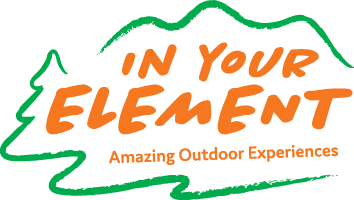Regardless of your favourite outdoor activity, Leave No Trace skills are important to learn.
Leave No Trace is a national and international program designed to assist outdoor enthusiasts with their decisions about how to reduce their impact when they hike, camp, picnic, snowshoe, run, bike, hunt, paddle, ride horses, fish, ski or climb. The program strives to educate all those who enjoy the outdoors about the nature of their recreational impact, as well as techniques to prevent and minimize such impacts. Leave No Trace is best understood as an educational and ethical program, not as a set of rules and regulations.
Leave No Trace information is rooted in scientific studies and common sense. The information is framed under the Seven Leave No Trace Principles.
Plan Ahead and Prepare
- Know the regulations and special concerns for the area you’ll visit;
- Prepare for extreme weather, hazards, and emergencies;
- Schedule your trip to avoid times of high use;
- – Visit in small groups when possible. Consider splitting larger groups into smaller groups;
- – Repackage food to minimize waste; and
- – Use a map and compass to eliminate the use of marking paint, rock cairns or flagging.
Dispose of Waste Properly
-
- Pack it in, pack it out. Inspect your campsite and rest areas for trash or spilled foods. Pack out all trash, leftover food, and litter;
- Deposit solid human waste in cat-holes dug 6 to 8 inches deep at least 200 feet from water, camp, and trails. Cover and disguise the cat-hole when finished;
- Pack out toilet paper and hygiene products; and
- To wash yourself or your dishes, carry water 200 feet away from streams or lakes and use small amounts of biodegradable soap. Scatter strained dishwater.
Leave What You Find
-
- Preserve the past: examine, but do not touch, cultural or historic structures and artefacts;
- Leave rocks, plants and other natural objects as you find them;
- Avoid introducing or transporting non-native species; and
- Do not build structures, furniture, or dig trenches.
Minimize Campfire Impacts
-
- Campfires can cause lasting impacts to the backcountry. Use a lightweight stove for cooking and enjoy a candle lantern for light;
- Where fires are permitted, use established fire rings, fire pans, or mound fires;
- Keep fires small. Only use sticks from the ground that can be broken by hand; and
- Burn all wood and coals to ash, put out campfires completely, then scatter cool ashes.
Respect Wildlife
-
- Observe wildlife from a distance. Do not follow or approach them;
- Never feed animals. Feeding wildlife damages their health, alters natural behaviours, and exposes them to predators and other dangers;
- Protect wildlife and your food by storing rations and trash securely;
- Control pets at all times, or leave them at home; and
- Avoid wildlife during sensitive times: mating, nesting, raising young, or winter.
Be Considerate of Other Visitors– Respect other visitors and protect the quality of their experience;
-
- Be courteous. Yield to other users on the trail;
- Step to the downhill side of the trail when encountering pack stock;
- Take breaks and camp away from trails and other visitors;
- Let nature’s sounds prevail. Avoid loud voices and noises.
Every little bit you can do helps the environment as a whole and makes the experiences of all other users so much better.
In Your Element offers both Awareness Workshops and Trainer courses.
Interesting website links:
www.lnt.org (for all you need to know about the Leave No Trace organisation).
